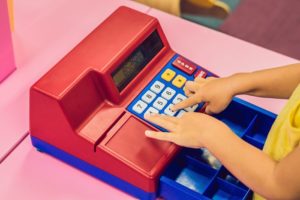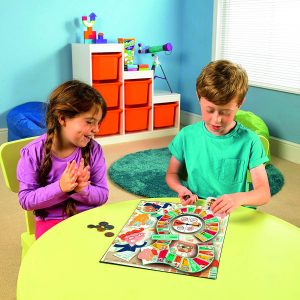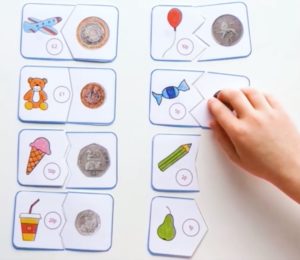No products in the cart.
7 Tips for Teaching Kids About Money
January 26, 2020
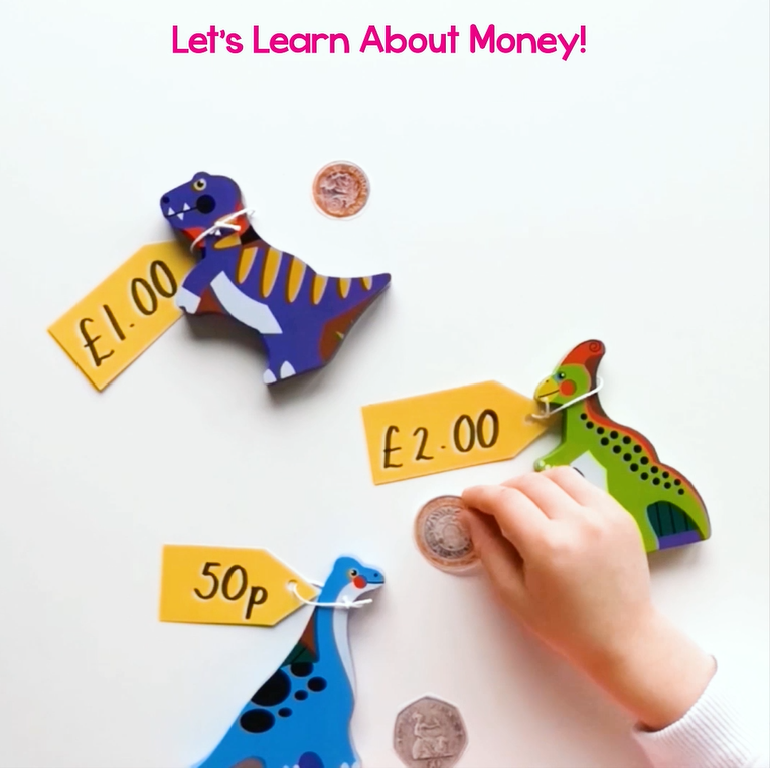
In the modern day, with the increasing prevalence of social media and exposure to advertisements, teaching kids about money is vital. From understanding the value of money to handling it in a responsible way, watch our snappy learning video above for fun ideas, then read below about 7 useful ways to teach kids about money. You’ll find entertaining money board games for kids, engaging money worksheets KS1, pretend play ideas and more.
1. Pretend Play and Toy Shop Money
Children can benefit from learning about money from a young age. Pretend play can boost your little one’s imagination and creativity, whilst improving their understanding of the world. Integrate learning about money with pretend play in these simple ways. Label play food with price tags and set up a pretend shop! Kids can grab their shopping bag and head to the ‘shops’ to buy their groceries. Children can also create their own pretend café, using cute small world appliances like this eco coffee machine toy. Both activities pair well with kids learning toys such as this cash register, handily equipped with UK toy shop money. As kids participate in pretend play activities such as these, they develop social skills, including turn taking, communication and role play.
2. Money Games for Kids
Introducing the concept of money to children through play encourages learning in a fun way. For children of all ages, board games are excellent for developing a variety of skills, including social and thinking skills. Numeracy toys such as Pop to the Shops help children learn about handling money and giving change, drawing on mathematical skills and the use of manners. Kids may also enjoy numeracy toys like Money Bags, a coin value toy shop money game that improves coin recognition and early financial awareness. Players must complete household chores to earn toy shop money and progress through the game. These money games for kids are not only excellent for teaching important life skills, but kids will be engaged and entertained whilst playing. Find more maths toys here.
3. Free Online Money Worksheets KS1
As well as a range of kids learning toys for teaching kids about money, there are also plenty of free online primary resources maths too. For example, BBC Bitesize provides both lessons and games to support children learning about money. You can also head to WordUnited’s very own Free Resources Hub, where you will find a growing range of free printables that support the National Curriculum. Take a look at these free money jigsaw puzzles and ‘Check Your Change’ money worksheets KS1.
4. Learning to Handle Money
In addition to pretend play, money games for kids and printables, it is also important for children to understand actual money. One way to do this is create money jars. Label two clear jars as ‘Save’ and ‘Give’. Children can collect money from birthdays or earn money by completing household chores. They can then choose what they do with this money. For example, money in the ‘Save’ jar can be saved towards a long-term goal or spent on an item of the child’s choice, such as a new book or toy. The ‘Give’ jar can be a lovely way to discuss the positive impact of money and how it can help others. Money from the jar can be used for other people, such as donating to charities. From a young age, children learn the true value of money and play an active role in decision making for how they choose to spend their money.
5. Leading by Example
Linking to the above tip, parents and guardians can lead the way when it comes to money by setting positive examples for children. Little ones look to adults for guidance and observe what their parents and guardians do, so demonstrating sensible spending habits can have a positive impact on your kids. By practicing responsible spending, your children will be more likely to follow suit as they get older.
6. Real Life Money Experiences
In relation to the above point, providing real life experiences for children can help to consolidate their understanding of money. This can simply be during your weekly food shop. Discuss the cost of items whilst at the supermarket, talking to children about how to select the best priced items. When it is time to pay, help your child to count out the money and hand it over to the cashier, checking they receive the correct change in return. Not only are these experiences productive for learning about money, but they also develop life skills that children will benefit from as adults.
7. Maths Books About Money
Last but not least, primary resources maths books about money are constructive learning tools. Begin with early years resources like this Wipe-Clean Money EYFS book, a colourful activity book for kids aged 3 and above with friendly monster illustrations, an excellent resource for teaching kids about money. Plus, each book comes with a wipe-clean pen, perfect for developing pen-control and repeating the activities again and again. Progress further with effective problem solving books that teach kids about money amongst a host of other mathematical skills.
Overall, learning about money can be an enjoyable experience for children. On top of this, you can promote a healthy, positive relationship for your kids with handling, spending and giving money. Browse more primary resources maths toys, kids learning toys and learning resources at WordUnited.com!

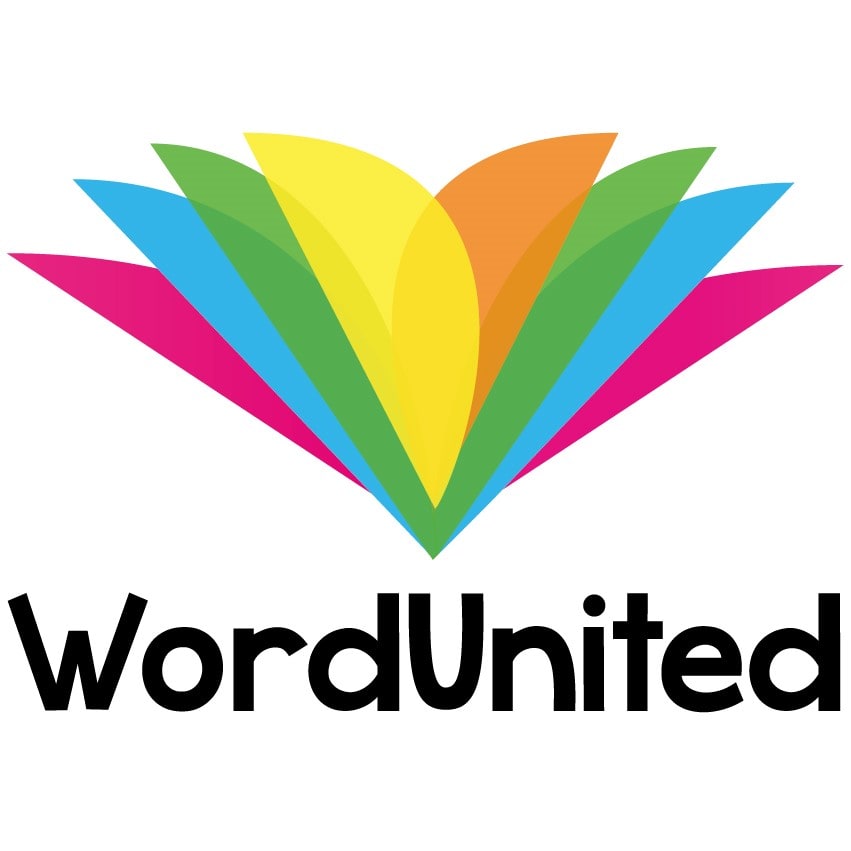

 01782 698558
01782 698558


